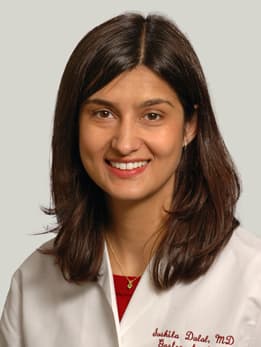Traveling the world with Crohn's disease

When Nuriya Robinson, MD, travels outside the United States, her carry-on bag contains much more than the requisite passport, money and reading materials. Her must-haves include medication with the original label, healthy snacks, a change of underwear, toilet paper and contact information for a local doctor at her destination.
"I try to be as prepared as possible," said Robinson, an obstetrician/gynecologist who spends four to six months a year working in Africa while coping with Crohn's disease, an inflammatory bowel disease that causes abdominal pain, diarrhea, nausea and vomiting. "I'm not going to let Crohn's stop me from pursuing the goals I have in life," she added.
Crohn's disease is a chronic, lifelong condition that causes inflammation in the lining of the gastrointestinal tract. Although there is no cure, symptoms can be controlled, allowing patients to lead active lifestyles. "There are many people living with inflammatory bowel disease who take medication, and are able to travel and work without limitations," explained University of Chicago Medicine gastroenterologist University of Chicago Medicine Inflammatory Bowel Disease (IBD) Center. Initially she saw the Center's director, monthly support group for patients with inflammatory bowel disease. "It's an amazing experience — cathartic and very supportive," Robinson said.
The significance of a Crohn's diagnosis "is hard to grasp," Dalal said. "Most patients will always need to be on medication, and that can be very anxiety-provoking."
Support group meetings offer an opportunity to share stories and exchange information. "Everyone's disease is different, so we get tips from each other," Robinson explained. One person in the group may have good advice on ways to avoid stress, which can trigger symptoms, while others talk about which medications they've found to be effective.
Despite being a physician herself, Robinson also took advantage of the University of Chicago Medicine's patient education seminars and workshops to learn more about how to stay healthy. "For me, it's been diet," she said. "That's the thing I've struggled with the most. It's challenging because in this situation I'm a patient, not a doctor."
With treatment and ongoing care from Dalal and the IBD specialists at the University of Chicago, Robinson's Crohn's disease now is in remission. Through the support group, she also has gained valuable insight into Crohn's disease that goes beyond the facts in medical textbooks. "There's no substitute for sharing the journey someone else has taken that's similar to your own," she said.

Sushila Dalal, MD
Gastroenterologist Dr. Sushila Dalal cares for patients with inflammatory bowel disease (Crohn's disease and ulcerative colitis). She is interested in the unique challenges that face women with IBD.
Read Dr. Dalal's physician profile